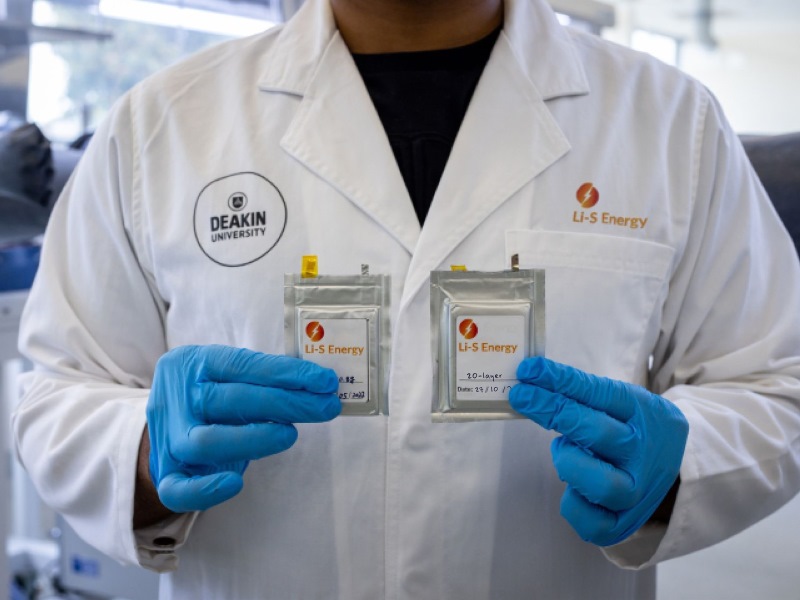The first cohort of scaleups in the Albanese government’s flagship innovation pipeline program have been unveiled, with $7.4 million in grants to be shared by five companies.
The local companies received the grants to commercialise batteries, precision fermentation, radiotherapy treatments, software and robotics, with hopes of one day scaling to the government’s biggest industry support package.
Announced by Industry minister Ed Husic in Melbourne on Friday, the firms are the first participants in the $392 million Industry Growth Program (IGP) funded in last year’s federal Budget.
The new program replaces the former government’s Entrepreneurs Programme, which offered similar grants and innovation advice to startups and scaleups.
But it is billed as a more strategic effort buttressed by aligned research programs and the Albanese government’s $15 billion National Reconstruction Fund (NRF) for mature businesses.

“Today’s a milestone because now innovative small businesses can see the support starting to flow, helping them grow into bigger businesses,” Mr Husic said.
“The Albanese government established the IGP to work in conjunction with the NRF to help propel SMEs into a solid growth trajectory, with this important avenue to grow our manufacturing capabilities using the cutting edge ideas of younger firms.”
The largest grant went to Cauldron Molecules, a Main Sequence-backed precision fermentation scaleup based near Orange. It received $4.3 million to commercialise its automated hyper-fermentation technology used to make food, animal feed, fibre and fuel.
Maker of lithium sulfur batteries, Li-S Energy, received a $1.7 million grant to scaleup its production of the technology, used in unstaffed aviation and defence industries.
“With the support of the IGP Grant we can build Australia’s first lithium metal foil manufacturing line. Essential for advanced batteries including our own and adding value to Australia’s own vast lithium reserves, the global lithium foil market is primed for massive growth in the coming years,” Li-S Energy chief executive Dr Lee Finniear said.
IGP grants are awarded from two streams. Early-Stage Commercialisation grants provide matched grant funding from $50,000 to $250,000 for building the commercial viability of an innovative product, process, or service. The larger grants of matched funding from $100,000 to $5 million from the Commercialisation and Growth stream are reserved for getting the innovation to national and international markets.
The first five recipients are:
| Applicant | Project title | Grant stream | Grant amount (ex GST) |
| Cauldron Molecules | Cauldron precision fermentation 10kl Facility: Unlocking industry TRL4-8 | Commercialisation and Growth grants | $4,277,616 |
| Li-S Energy | Sovereign capacity in high tolerance lithium foil for next-gen batteries | Commercialisation and Growth grants | $1,667,096 |
| Brandsec | Unphish: Addressing omni-channel threats via unified & automated reporting | Commercialisation and Growth grants | $231,000 |
| Electrogenics Laboratories | Electrogenics MOSkin (TM) – an innovative patient radiation dosimeter | Commercialisation and Growth grants | $1,046,160 |
| Forager Automation | A robotic blueberr harvester: MVP development | Early-Stage Commercialisation grants | $157,943 |
The companies were selected for grants that opened in May based on the advice of innovation experts and will also gain access to a support network of individuals and industry partners.
Advice and admin costs will swallow more than 25 per cent of the Industry Growth Program’s $392 million budget, leaving $105 million less in funding for early-stage commercialisation grants.
The program ends a funding gap for early-stage companies after the incoming Albanese government scrapped the Entrepreneurs Programme in 2022 to help seed its own commitments.
Established research programs have continued to disperse grants and dedicated commercialisation grants are now up and running. But the $15 billion NRF for established companies to begin transformational projects is yet to make its first investment.
Do you know more? Contact James Riley via Email.

